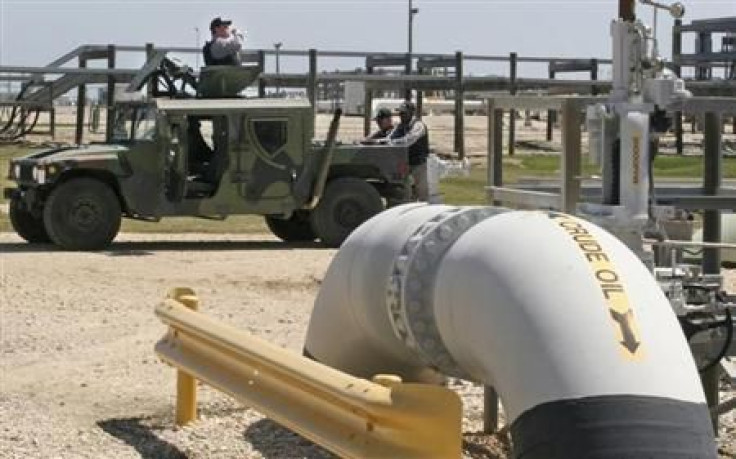US Probes Charges Of Unfair Low Pricing Of Steel-Pipe Imports From India And 8 Other Countries Even As Vice President Biden Asks India To Lower Trade Barriers

The U.S. on Tuesday opened a probe to determine whether manufacturers from nine countries including India are selling steel pipes used by the oil and gas industry at unfairly cheap prices, even as U.S. Vice President Joe Biden, who's in India on a four-day tour, is seeking to reduce entry barriers for U.S. imports into the South Asian nation.
The Commerce Department will examine imports of oil country tubular goods from India, South Korea, Vietnam, the Philippines, Saudi Arabia, Taiwan, Thailand, Ukraine and Turkey to decide if these countries violated U.S. fair-trade laws.
U.S. manufacturers have claimed that low-cost imports from these countries have prevented them from taking advantage of a recent spike in domestic demand for the products. Indeed, an increase in oil and gas production in North America has led to the biggest jump in demand in 25 years for oil country tubular goods.
Several manufacturers including U.S. Steel Corp. (NYSE:X), Maverick Tube Corp., a division of Tenaris SA (NYSE:TS), Energex Tube, part of the JMC Steel Group, and TMK Ipsco have approached the International Trade Commission for relief.
"While the last few years should have been extremely strong for Maverick, the import surge deprived us of the benefits of recovering demand," Brad Lowe, a senior executive at the Chesterfield, Mo.-based company told the ITC during a hearing on Tuesday, Reuters reported. "Imports have taken away sales and have significantly suppressed and depressed market prices."
Doug Matthews, a senior vice president at Pittsburgh-based U.S. Steel, told the ITC panel, "For three years now, I have heard the same tale from our salesmen: 'Imports are underselling us. We must lower our prices or our customers will go elsewhere."
U.S. manufacturers are seeking antidumping duties on imports that they claim are underpriced from the nine countries currently being investigated. The companies also are demanding additional countervailing duties on India and Turkey to offset the alleged subsidies given by the governments of these countries to their local producers.
U.S. manufacturers are asking for a hefty antidumping duty of about 240 percent on Indian OCTG imports. Meanwhile, Vice President Biden, speaking at a business conference in India on Wednesday, urged Asia's third-largest economy to lift entry barriers for U.S. exports and called for a trade and investment partnership that is open and fair to both countries.
Both the U.S. and India, even while seeking to improve their relationship, have been fighting bitter trade wars regarding antidumping duties and alleged intellectual property violations. Bilateral trade between the two countries has quintupled over the past 13 years, reaching nearly $100 billion this year, with India being the biggest exporter.
Earlier this month, local media reports from India said that the Indian government is considering imposing antidumping duties on solar photovoltaic modules imported from the U.S. and other countries such as China, Malaysia and Taiwan to protect its domestic manufacturers.
India had earlier proposed to restrict the use of imported solar equipment in a solar power project worth billions of rupees -- a move that was challenged by the U.S. in the World Trade Organization.
Biden urged India to lift trade restrictions and noted that high barriers to entry and protectionist policies along with a lack of protection for intellectual property and inconsistent tax rules were obstructing the creation of a friendly business environment in India.
© Copyright IBTimes 2024. All rights reserved.












